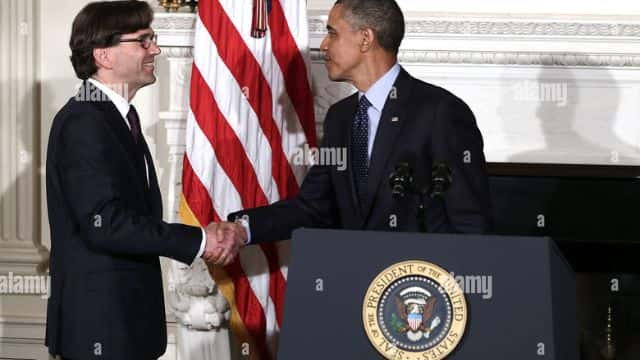Jason Furman joins us now for a broader look at some of the economic challenges we face as a country.
He served as Chairman of the Council of Economic Advisers during the Obama administration and is now a Harvard professor.
Excuse me, he’s just arrived from Boston. Good morning to you. As you know, inflation is extremely high, at 9.1 per cent.
Over the last year, the Fed has been hurting people with shelter, food, and gas. Are we there yet?
I’m not sure, Margaret. Oil and gasoline prices have been falling. So the headline number, which is the one that Americans are most concerned about, may be falling.
What was concerning in this latest report was that, even after removing all the volatile items, the underlying core was actually strengthening, suggesting that the 12-month numbers may rise in the coming months.
Looking ahead, Bank of America now predicts a mild recession in the second half of the year, while JP Morgan warns that the risk of a recession is uncomfortably high.
However, Citigroup’s CEO said she sees no evidence of a recession right now. So this is the big money bet.
What’s your bet? Where do we stand in terms of the possibility of a recession?
I’m not convinced, in part because the economic signals in the first half of the year were ambiguous; GDP appears to have fallen.
However, job opportunities increased significantly. Business leaders are concerned about a recession, but they are still hiring.
If they’re bankers, they’re still making loans to people. Consumers are complaining about the economy, but they are still spending money.
It’s difficult to square a lot of these contradictory signals right now.
Right, but you’re saying it’s entirely possible. Is it just not clear?
Oh, it’s certainly possible. But, you know, the risks are much higher than they are normally.
However, the notion is that a recession is a foregone conclusion, or even a more than 50% chance.
I don’t see it. But I’m looking in the rearview mirror, trying to guess what’s going to happen ahead of us.

I’d like to ask you about something you’ve been tweeting about a lot, and that is the fiscal side of the spending plan here.
There have been weeks of talks, as we just discussed, over the President’s proposals on climate spending and a variety of other issues, which have recently collapsed.
You’ve been tweeting in support of the Democratic bill, which appears to expand an income tax on individuals earning more than $400,000.
Why do you think it’s a good idea to raise taxes during such an inflationary period?
According to Senator Manchin, we shouldn’t be because of inflation.
Yeah, so Margaret, Senator Manchin is absolutely correct to be concerned about inflation following the Friday report, which means we’ll need to do more, the Feds are likely to signal larger rate increases in the future, and Congress should be trying to do their part and helping out if they can cut the deficit, including raising taxes on high-income households, which would reduce a bit of spending in the economy and cool the economy down a little bit. Clearly, this is a time when everyone should pitch in to help bring inflation down.
What’s interesting is that when you were on this program in May, you stated that one of the reasons the United States has such high inflation is the emergency spending that President Biden signed into law in March of 2021.
Senator Manchin points to such spending and says, “See, this is why we have to wait.” So why was he right in the past and wrong now when it came to spending?
Yes, the difference is that we’re talking about something entirely different now than it was then.
This amounted to $1.9 trillion in new spending. A $500 billion deficit reduction was now on the table.
There was a net reduction in the deficit. I believe almost any expert on the subject, regardless of political affiliation, would agree that would lower inflation.
There are Republican friends of mine who would say, Oh, I don’t like lowering inflation by raising taxes on high-income households; they might have another way they’d rather lower inflation, but this is unambiguously going to bring inflation down, and from my values and perspectives, it would bring it down in a fair way, certainly much more fair than the tiny reduction in inflation we’ll get if 12 million people lose their health subsidies and see their premiums rise.
Read more:-
- Steve Bannon Braces for a Contempt Trial as a January 6 Panel Receives Deleted Secret Service Texts by Tuesday
- Endangered Species Federally Protected Once More
- The Economy is in ‘Terrible Shape,’ According to an Investment Expert, as Inflation Reaches a New 40-year High
So, President Biden issued a statement saying that he would support the slimmed-down version of the bill that Senator Manchin is endorsing, which would lower healthcare premiums and prescription drug costs. Are you saying that the slimmed-down version has no meaning?
Oh, look, I think that slimmed-down version helps; it would lower inflation, both indirectly and directly, by slowing the growth of prescription drug costs in both the private and public sectors.
So, if that bill is the best you can get—and I certainly don’t know enough about Washington tactics to judge that bill—it would be a very good thing to do.
You know, even within that bill, there are some open questions, at least in my mind, if you’re not going to raise taxes, how about enforcing the tax code we already have?
Every year, $600 million goes uncollected, and audits of millionaires are down by 70%. If you fund the IRS, you can collect a lot more taxes without raising tax rates on anyone.


